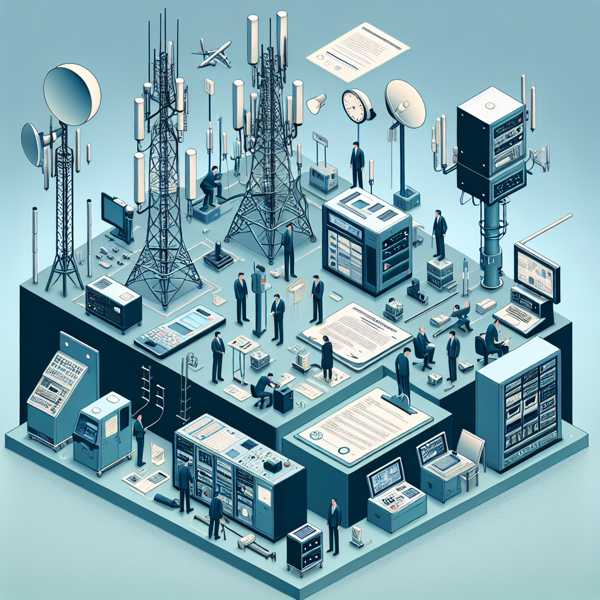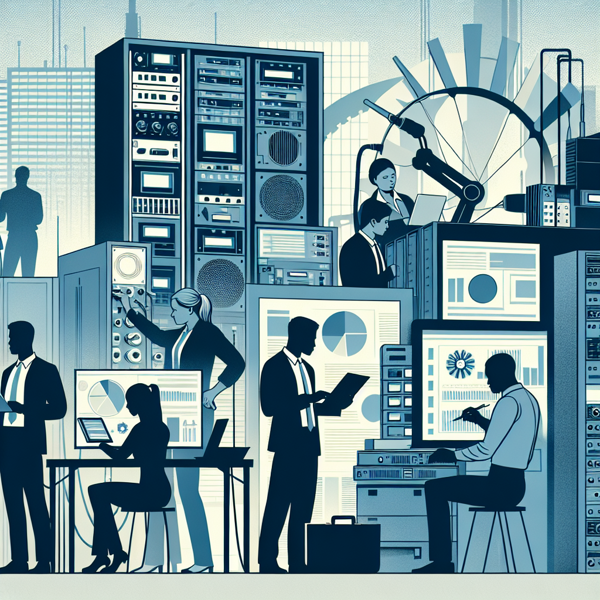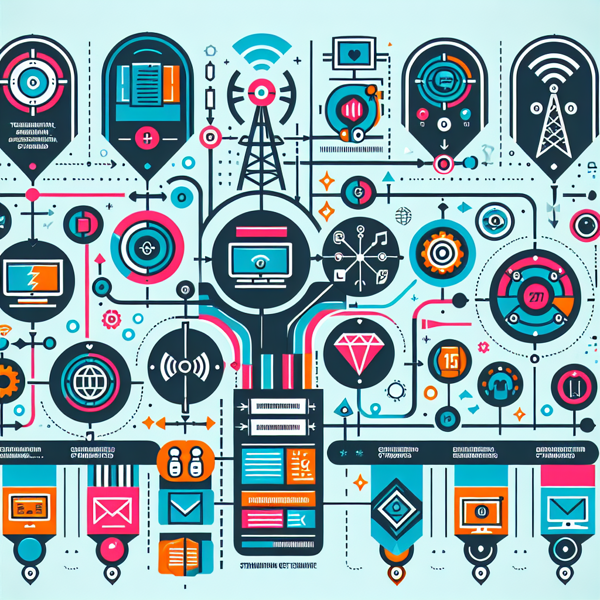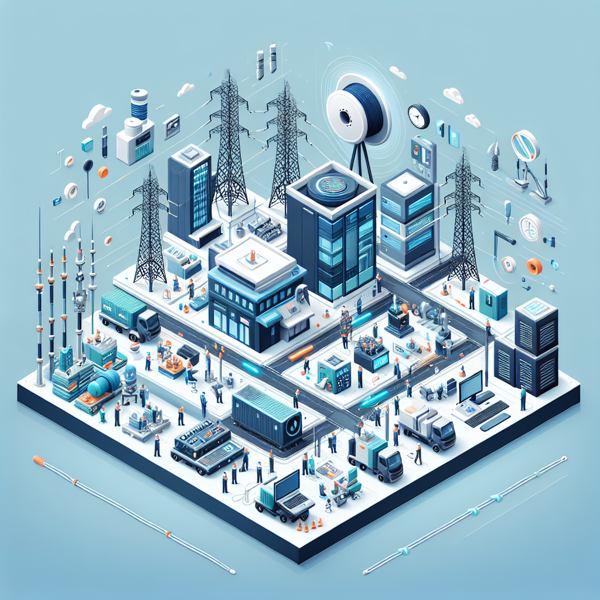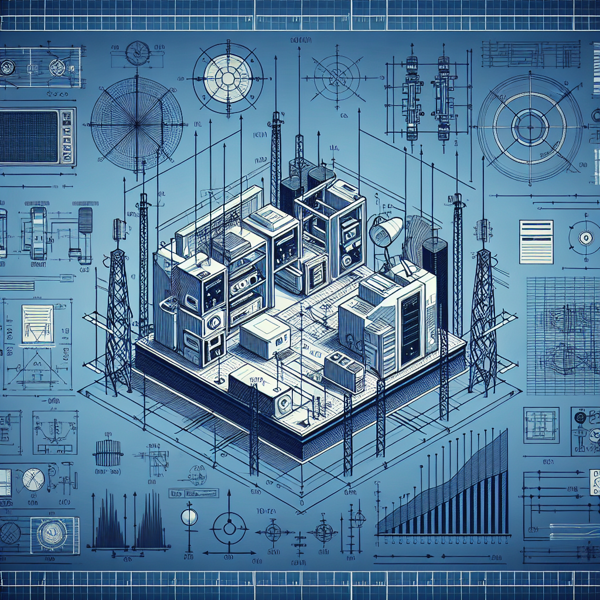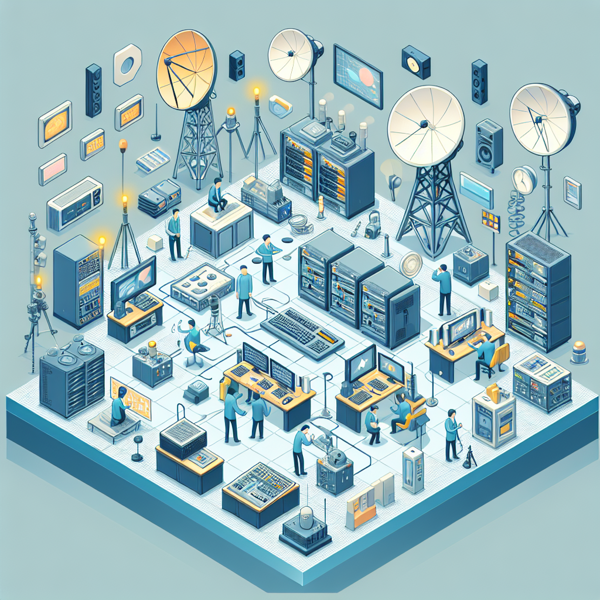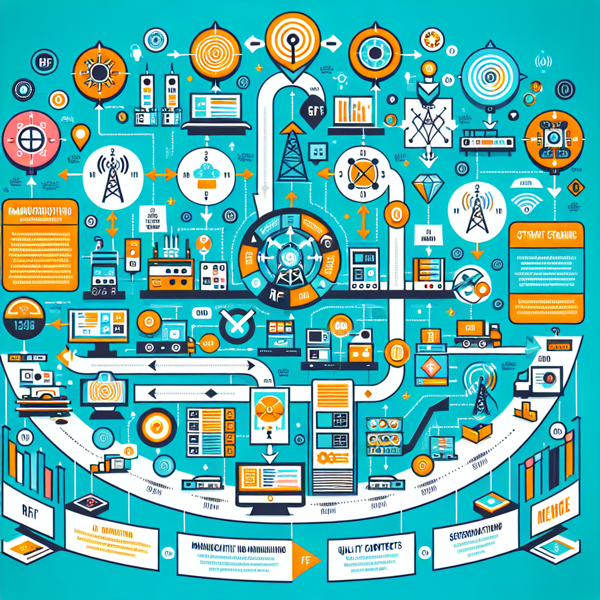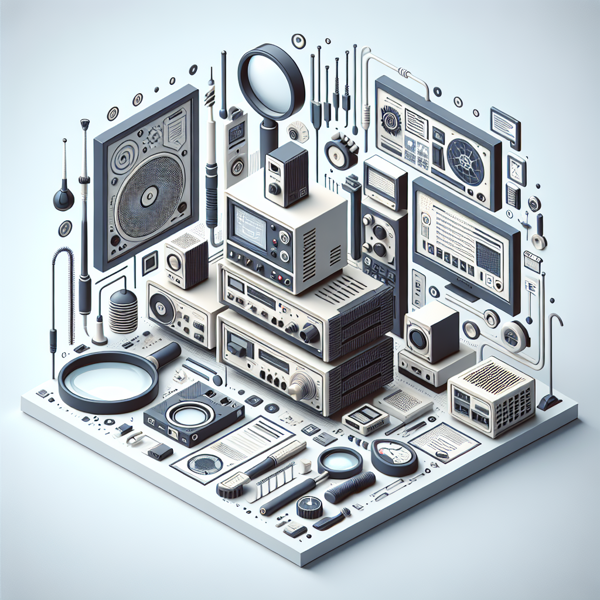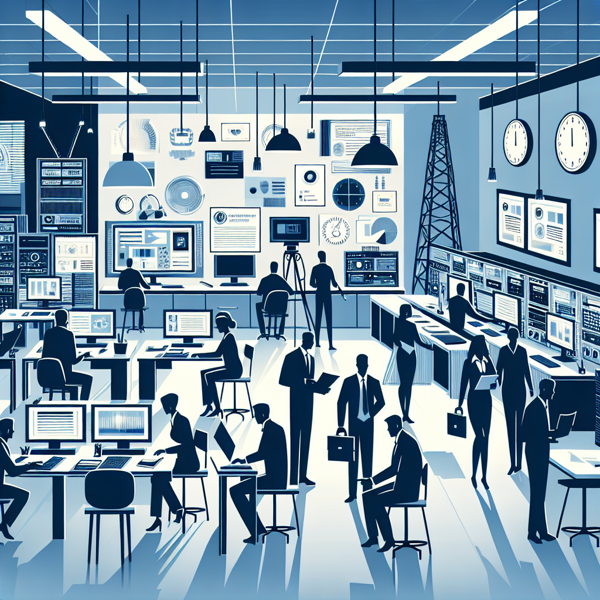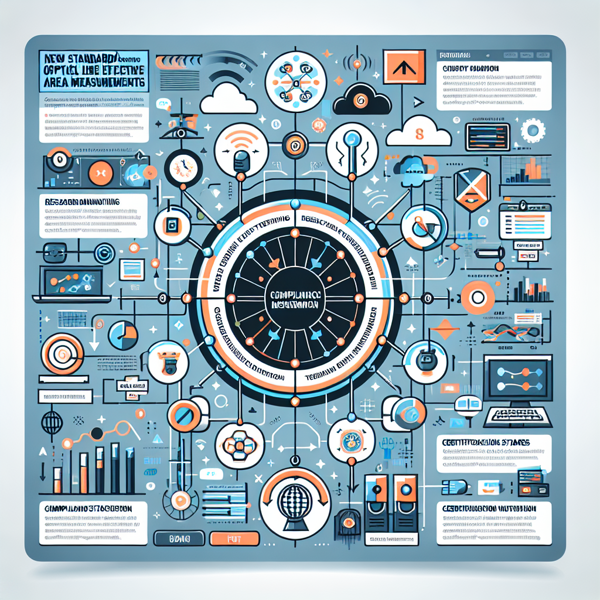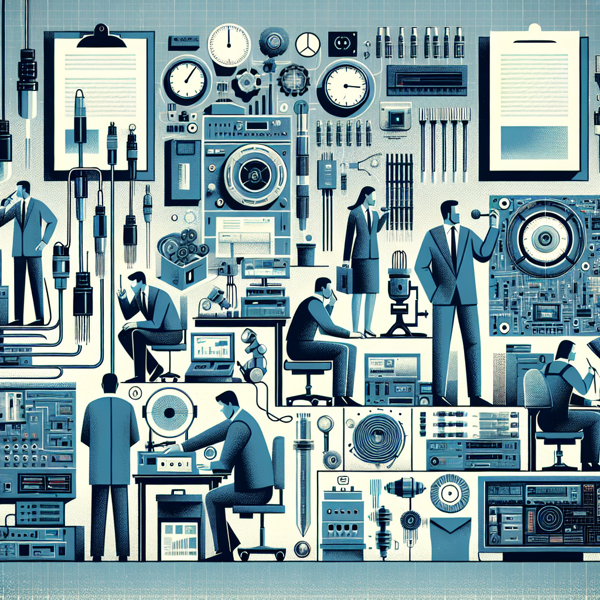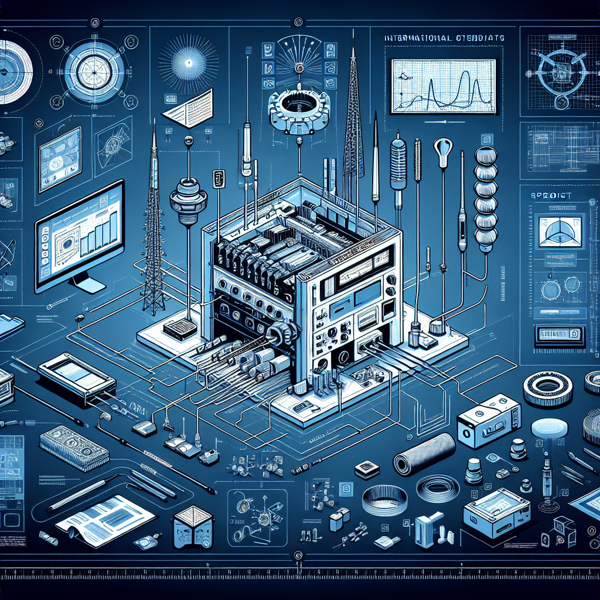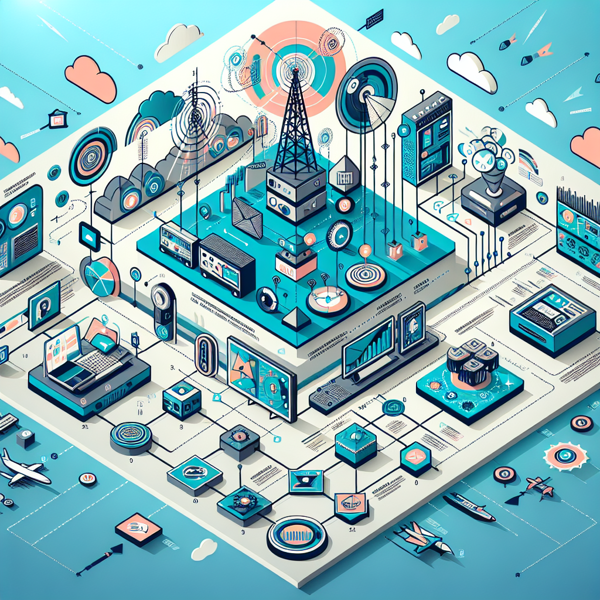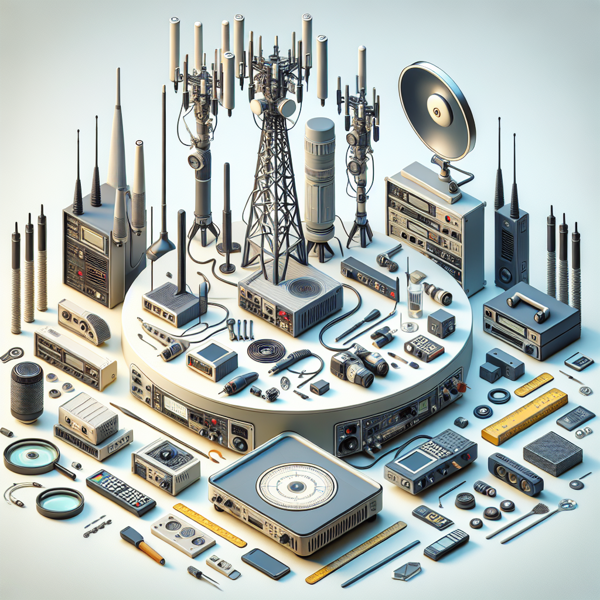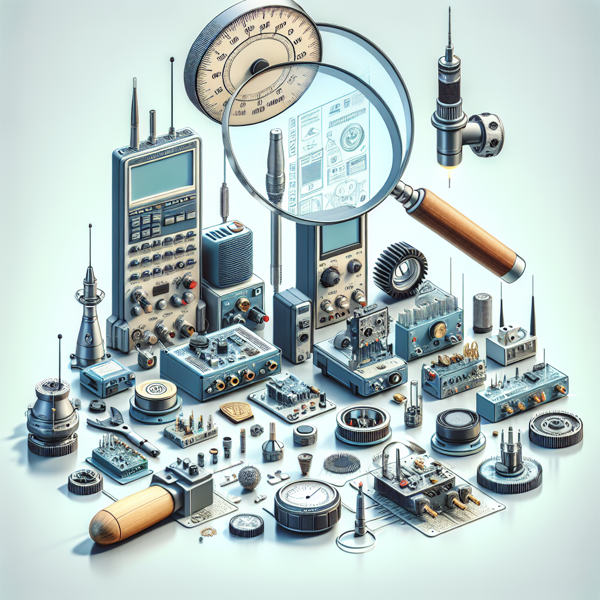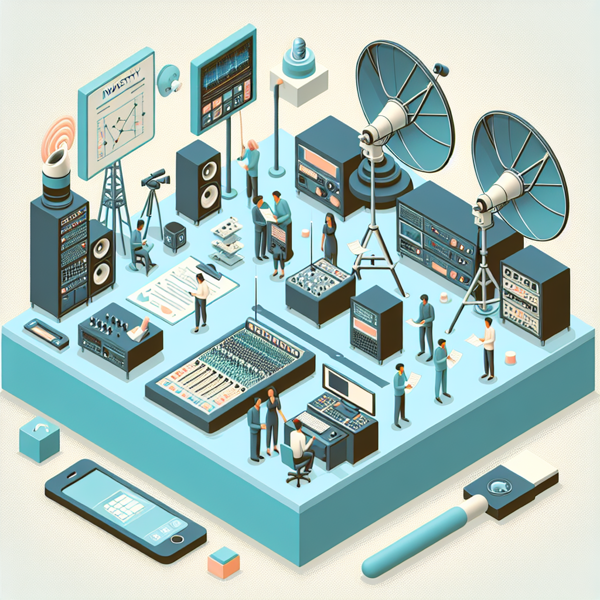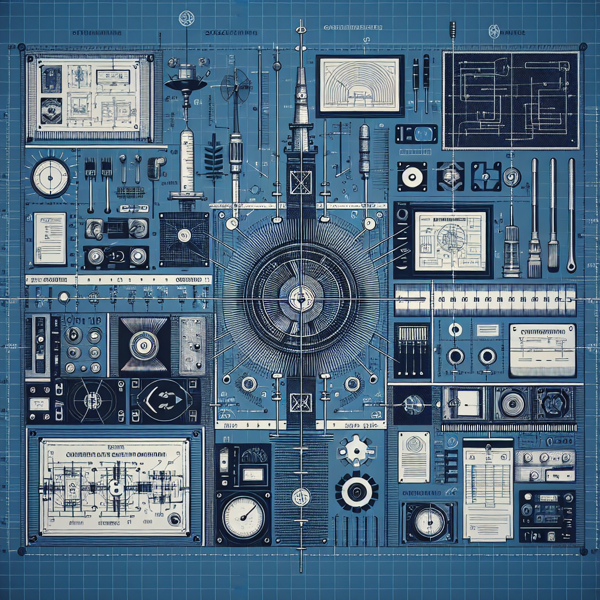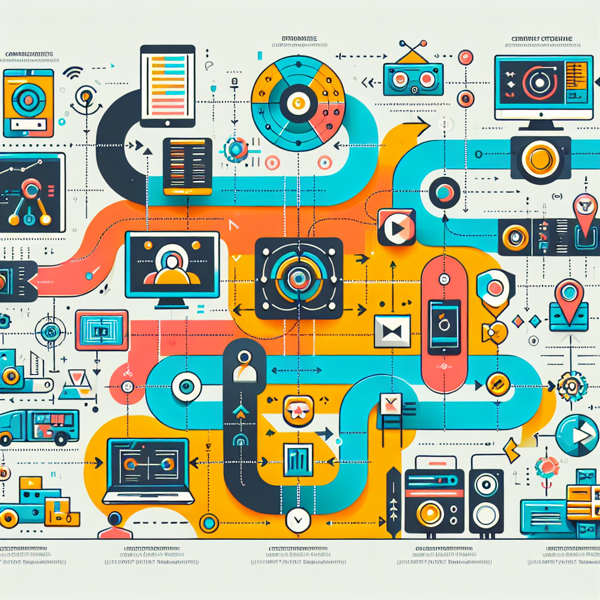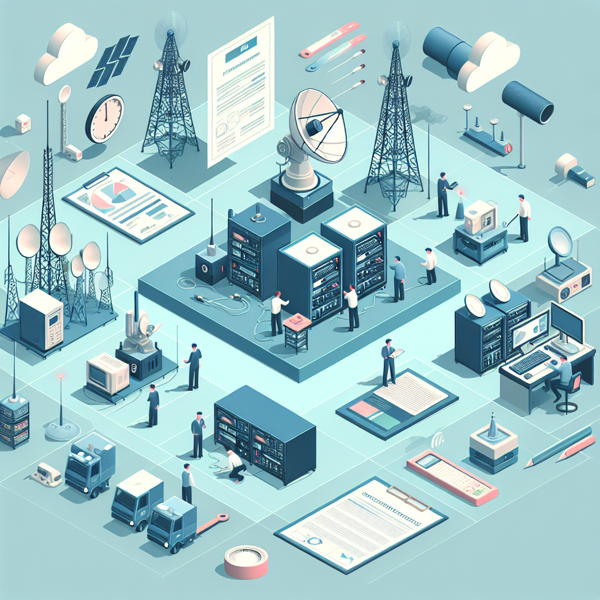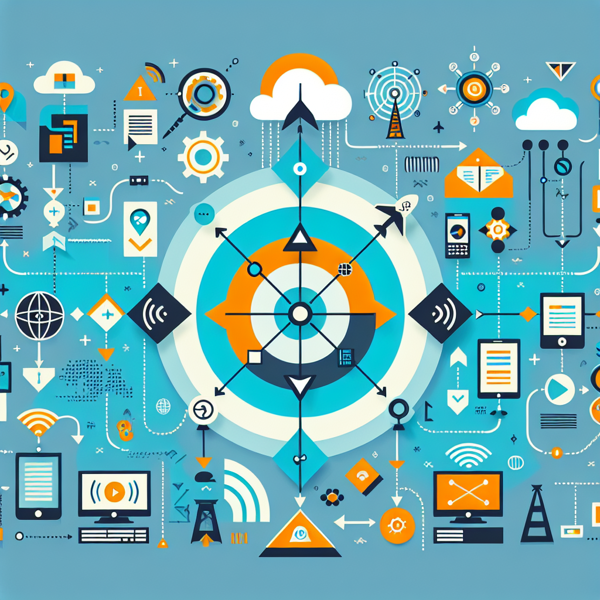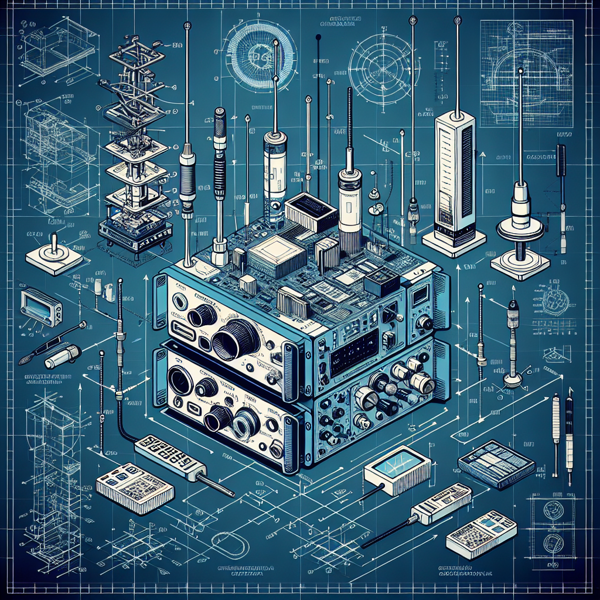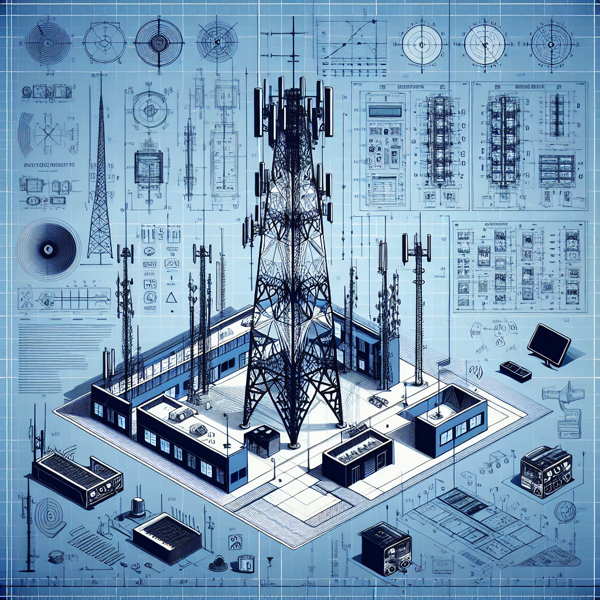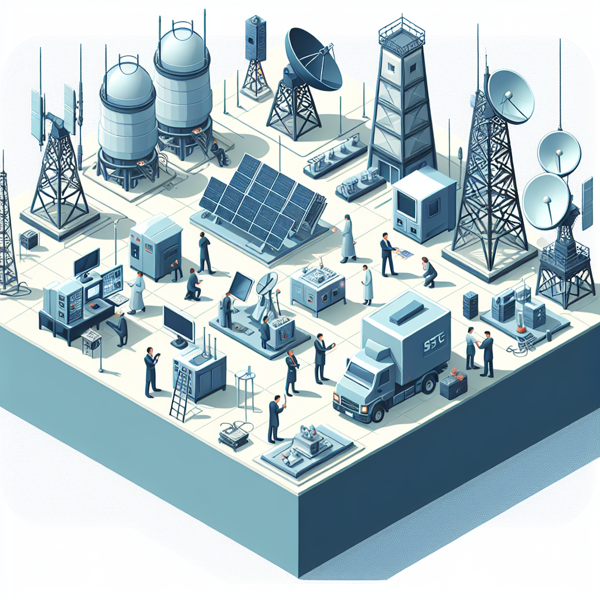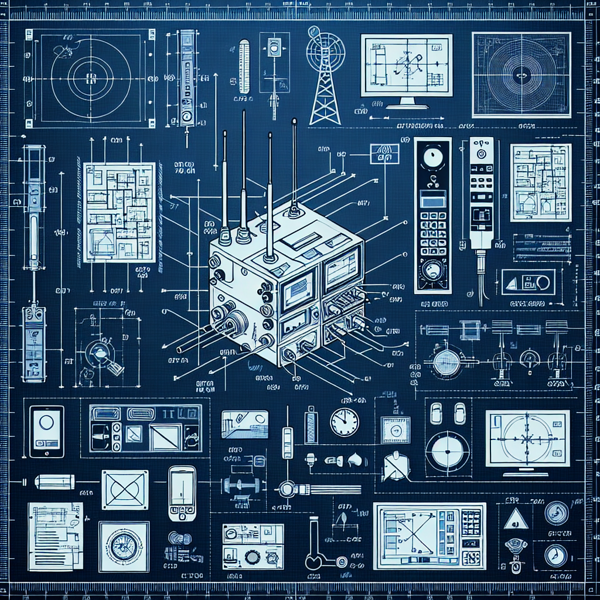Telecommunications
Discover the latest update in Telecommunications and Audio/Video Engineering standards with IEC 61290-1-2:2026, published in February 2026. This new edition standardizes test methods for optical amplifiers with enhanced accuracy, safety, and measurement clarity using electrical spectrum analyzers. Explore what’s changed, key technical requirements, and practical guidance for compliance, making it essential reading for network engineers, quality managers, and industry professionals seeking to improve performance and reliability in fiber optic and optically amplified subsystems.
Discover the latest February 2026 international standards in telecommunications, audio, and video engineering. This article (Part 2 of 3) reviews five major standards—including advancements in USB Type-C, low phase-noise oscillators using photonics, fibre optic attenuator testing methods, and the newest NFC Forum specifications for wireless charging and data exchange. Explore practical implications for connectivity, device design, compliance, and product development. Essential reading for engineers, compliance managers, and professionals who need to stay on top of evolving requirements in telecommunications and audio/video technology compliance.
Explore the latest international standards published in February 2026 impacting telecommunications, audio, and video engineering. This comprehensive Part 1 article covers five new standards, detailing requirements for optical fibre amplifiers, digital audio interfaces, spatial switch crosstalk, distributed fibre strain sensing, and IIoT applications in power distribution management. Key highlights include enhanced reliability methods, advanced digital audio support, improved fibre optic testing procedures, and secure architectures for IoT-based grid solutions. Essential reading for engineers, compliance professionals, and industry leaders seeking clarity on regulatory updates, compliance strategies, and practical implications in the fast-evolving communications and networking landscape. Stay ahead with authoritative analysis from iTeh Standards.
Explore the most important January 2026 standards updates in telecommunications and audio/video engineering, highlighting the new IEC 62496-4-3:2026 international standard for interface requirements in optical circuit board assemblies. This article covers detailed scope, key specifications, and implementation insights for the latest polymer MT connector interfaces, focusing on high-density, high-speed fiber optics for next-generation communication networks. Discover the standard’s critical role in system compatibility, network scalability, and the broader impact on industry compliance. Stay ahead of technological advances and ensure robust compliance with the latest international guidelines for your organization.
Discover the essentials of telecommunications standards with a focus on optical fibre cables and communication protocols for metering. This comprehensive guide covers three influential standards—prEN IEC 60794-1-117:2025, SIST EN 13757-3:2025, and SIST EN IEC 60794-2-20:2025—shedding light on their scope, requirements, and business benefits. Learn why adherence to these standards is vital for modern organizations implementing new technologies, ensuring productivity, robust security, and seamless scalability. Perfect for industry professionals, procurement specialists, and anyone aiming to build future-proof, compliant telecom infrastructures.
Explore a comprehensive overview of three crucial telecommunications standards: prEN IEC 60794-1-117:2025 on optical fibre cable bending stiffness tests, SIST EN 13757-3:2025 for meter communication protocols, and SIST EN IEC 60794-2-20:2025 covering multi-fibre optical indoor cables. This article highlights why implementing these standards is vital for modern businesses, especially when deploying new technologies for smarter infrastructure and connectivity. Readers will benefit from a clear explanation of each standard’s scope, the industries impacted, compliance essentials, and actionable implementation guidance. Whether focused on boosting productivity, ensuring network security, or scaling solutions efficiently, understanding and adopting these standards helps organizations stay competitive and compliant in today’s digital age.
Explore five newly published standards essential for the Telecommunications, Audio, and Video Engineering sector, released in January 2026. This in-depth article covers updates on multi-channel RF connectors, electromagnetic emission test methods for LED control gear, innovative management of distributed energy storage for electric vehicles, and guidance for OTDR backscattering traces. Discover technical highlights, compliance implications, and best practices to enhance system reliability, safety, and interoperability. This comprehensive review is a must-read for engineering, compliance, and procurement professionals aiming to stay ahead in the fast-evolving telecommunications and AV technology landscape.
Explore the top five newly published standards for the telecommunications and audio-video engineering sector, released in January 2026. This in-depth article covers the latest requirements for fibre optic pressure sensors, secure network management in power systems, and dynamic module specifications. Discover key technical changes, compliance insights, and industry impacts for each standard. Ideal for engineers, quality managers, compliance officers, and procurement specialists seeking to understand new benchmarks and implementation best practices. Stay ahead with authoritative analysis and direct access to each standard on iTeh Standards.
Explore a comprehensive overview of four crucial international standards in the telecommunications, audio, and video engineering sector. This guide covers EN 62037-4:2012/A1:2026, EN IEC 62037-2:2021/A1:2026, EN IEC 62037-6:2022/A1:2026, and SIST-TP IEC TR 61000-3-13:2026. Discover how these standards address passive RF and microwave intermodulation, as well as electromagnetic compatibility (EMC) emission limits. Learn how implementing these standards increases operational productivity, security, network reliability, and supports scaling with new technologies. Essential reading for telecom professionals, network engineers, and organizations aiming to ensure compliance, reduce risks, and optimize telecommunication infrastructure with up-to-date best practices in the industry.
Dive into the essentials of four foundational telecommunications standards covering passive RF and microwave intermodulation measurement, as well as electromagnetic compatibility (EMC) in power systems. This comprehensive guide explores EN 62037-4:2012/A1:2026, EN IEC 62037-2:2021/A1:2026, EN IEC 62037-6:2022/A1:2026, and SIST-TP IEC TR 61000-3-13:2026. Discover how these standards ensure reliable, secure, and scalable telecom infrastructure, minimize interference, and support successful implementation of emerging technologies. Learn about the impact of compliance on productivity, data integrity, and business scaling—vital insights for professionals, businesses, and organizations planning robust and future-ready audio and video engineering solutions in telecommunications.
Explore the latest developments in telecommunications, audio, and video engineering standards published in December 2025. Four new European and international standards define enhanced procedures for optical fibre cable testing (torsion, midspan access, nuclear radiation resistance) and radio frequency coaxial assemblies for modern radio and TV systems. This article offers detailed explanations of the technical requirements, compliance benefits, and industry implications for engineers, quality managers, and procurement specialists. Stay ahead of the curve with authoritative insights into how these standards support network reliability, signal quality, and safety in next-generation communication infrastructure.
Stay up-to-date with December 2025’s pivotal standards in the telecommunications and audio/video engineering sector. This article reviews five newly published IEC standards, focusing on advanced requirements for measuring passive intermodulation in RF, microwave devices, and antennas—key for wireless system reliability. Explore the impact of these updates on cable assemblies, coaxial cables, and antennas, ensuring quality, compliance, and performance for industry professionals. With practical insights and expert analysis, this article is a vital resource for engineers, compliance officers, and procurement specialists keeping pace with global telecommunications and AV standards.
Discover the key updates from December 2025 in Telecommunications, Audio, and Video Engineering standards with the release of IEC TR 62284:2025. This article covers the newly published guidance on effective area measurements of single-mode optical fibres, highlighting improved measurement descriptions, refined methodological requirements, and revised technical specifications for fibre-optic applications. Learn about the significance of accurate effective area measurement, essential compliance considerations, and how these updates benefit engineers, quality managers, and procurement professionals in the evolving field of telecommunications and optical fibre technology.
Explore key updates in telecommunications, audio and video engineering standards with the December 2025 release of five important IEC standards. This article covers advances in measurement procedures for fibre optic interconnects and innovative requirements for pressure sensors using fibre Bragg gratings. Industry professionals in telecommunications and optical engineering will benefit from in-depth coverage of testing methods, compliance implications, and practical guidance for implementing IEC 61300-3-7:2021 (triple reference) and IEC 61757-8-1:2025 (dual reference). Stay ahead in quality control, procurement, and engineering best practices by learning about new requirements that ensure network reliability, measurement accuracy, and sensor innovation. Gain actionable insights for compliance, certification, and leveraging these standards for competitive advantage.
Explore the latest December 2025 standards updates for telecommunications and audio/video engineering. This comprehensive overview covers five newly published international standards, including technical details of IEC 61300-1:2022 for fibre optic interconnections and IEC 62351-7:2025 for network and system management in power systems. Learn about new test procedures, security models, compliance requirements, and best practices. Essential reading for engineers, quality managers, and compliance officers seeking to stay updated on the latest specifications and implementation guidelines in the rapidly evolving communications sector.
Explore the latest December 2025 updates for Telecommunications, Audio, and Video Engineering standards. This article (Part 4 of 7) details five newly published international standards, from CEN and IEC, covering wireless M-Bus communication for meters and critical advancements in fibre optic interconnecting devices and passive components. Highlights include new vocabulary guidance, rigorous testing procedures, and essential compliance updates for quality managers, engineers, compliance officers, and procurement professionals. Discover how these standards ensure reliability, security, and interoperability in modern metering and fibre optic infrastructure. Read on for practical implementation insights, compliance benefits, and direct access to each standard via iTeh Standards.
Stay ahead in Telecommunications, Audio and Video Engineering with our in-depth coverage of five key standards published in December 2025. This article (Part 2 of a 7-part series) explores crucial updates, including distributed fibre optic strain sensing, enhanced FM receiver test methods, and specifications for high-performance HN RF coaxial connectors. With expert analysis of requirements, compliance insights, and practical tips, industry professionals, engineers, and compliance managers get the technical insights needed to ensure high-quality, future-ready systems. Discover how adopting these new standards can enhance reliability, safety, and market access in a rapidly evolving sector.
Explore the essential international standards newly published in December 2025 for telecommunications and audio/video engineering. This first installment covers five critical standards that introduce updated requirements for RF cable assemblies, waveguides, EMC power quality, and RF testing. Learn about changes in cable and connector specifications, compatibility improvements, enhanced EMC measurement methods, and advanced testing protocols. Discover how these standards support compliance, improve product quality, and facilitate industry innovation. Whether you are an engineer, compliance manager, or procurement specialist, this comprehensive review provides valuable insights and actionable guidance for your organization. Stay up to date and ensure alignment with the latest global best practices in telecommunications and AV technology.
Explore the latest standards shaping the future of telecommunications and audio-video engineering, published in November 2025. This comprehensive article (Part 3 of 4) covers five newly released international standards, including updates to optical fibre specifications, fibre optic connectors, HN series RF coaxial connectors, and EMC test methodologies for cables and assemblies. Industry professionals, compliance officers, and engineers will gain actionable insights into essential technical requirements, compliance impacts, and best practices—as well as the business benefits of adopting these standards. Stay ahead in the ever-evolving telecom and AV sectors with authoritative coverage from iTeh Standards.
Explore the top five international standards published in November 2025 for telecommunications and audio/video engineering. This in-depth article covers critical updates in radio-frequency connectors, multimedia conferencing user experience, optical fibre cable testing, low-latency communication, and leaky waveguide engineering. Industry professionals will gain insights into new requirements, best practices for compliance, and how these standards will impact the future of communications and AV systems. Stay ahead of regulatory changes, ensure quality, and maintain global competitiveness with authoritative coverage from iTeh Standards.
Explore the latest November 2025 international standards updates in telecommunications and audio/video engineering. This comprehensive article (Part 2 of 4) covers five essential new and revised standards, including antenna and test site requirements for radio disturbance, waveguide specifications, smart grid interfaces, and advanced cable testing methods. Industry professionals—engineers, compliance officers, quality managers, and procurement specialists—can gain actionable insights on regulatory compliance, technical improvements, and implementation best practices. Stay ahead in the rapidly evolving telecom and AV engineering field with authoritative guidance and direct links to full standards on iTeh Standards.
Explore the November 2025 update covering the latest standards in Telecommunications, Audio, and Video Engineering. This article details two significant publications in electromagnetic compatibility (EMC) testing for metallic cables and connectors (IEC 62153-4-7:2021), crucial for ensuring high-performance, interference-free communications. Gain insight into advanced test methods, compliance requirements, and industry impact. Learn how these standards enable robust EMC assessment, illustrate key technical improvements, and help professionals strengthen quality, reliability, and compliance in telecommunications systems. Ideal for industry engineers, compliance managers, and technical leaders committed to staying at the forefront of standards evolution.
This monthly overview examines the standards published in October 2025 for the Telecommunications, Audio and Video Engineering sector. Covering five significant standards, this retrospective summary highlights advances in optical fibre management, portable multimedia device testing, and essential updates for electromagnetic compatibility and power quality measurement. The article offers in-depth analysis of product requirements for fibre splice boxes, robust methodologies for assessing battery life in wearable audio equipment, and major revisions to EMC testing approaches. Professionals, engineers, compliance managers, and procurement experts will find actionable insight into emerging standardization themes such as enhanced reliability, adaptability to modern environments, and harmonization with international best practices. Whether you are ensuring compliance or planning technology investments, this comprehensive recap helps you stay informed about the evolving standards landscape.
This monthly overview examines the standards published in October 2025 for the Telecommunications, Audio, and Video Engineering sector. Covering one key standard—CISPR 16-1-4:2025—this recap explores updates regarding radio disturbance and immunity measurement apparatus, focusing on antennas and test sites for radiated disturbance measurements. Highlighting major technical revisions, expanded definitions, and enhanced cable termination requirements, the article offers a concise, professional guide to help industry professionals, quality managers, compliance officers, and engineers stay abreast of regulatory shifts and implementation priorities. Dive in to understand this standard’s impact, compliance timelines, and the broader trends shaping the sector’s approach to electromagnetic compatibility.
This monthly overview examines the standards published in October 2025 for the Telecommunications, Audio, and Video Engineering sector (ICS 33). Covering five impactful standards, this article analyzes key developments in fibre optic testing, twinax cabling for high-speed Ethernet, environmental resilience of optical cables, and user quality of experience for multimedia conferencing. Professionals in engineering, compliance, and procurement will benefit from insights into the scope and requirements of each standard, as well as common themes emerging this month—such as the sector’s increased emphasis on network performance measurement, environmental testing, and end-user experience. This retrospective offers critical guidance for staying current, streamlining compliance, and understanding evolving industry priorities. Read on for expert analysis and direct access to the latest standards shaping the future of telecommunications, audio, and video technology.
This monthly overview examines the Telecommunications standards published in October 2025, Part 2 of a four-part recap. Covering five recently published standards, this article provides in-depth analysis on updated RF connector specifications, advanced emissions measurement methodologies, and fibre optic testing techniques. Discover how these standards—from high-performance RF connectors and interoperable coaxial interfaces to advanced disturbance models for radio service protection—reflect trends in high-frequency communications, test and measurement precision, and next-gen network infrastructure. The overview highlights key compliance considerations and emerging technology directions, ensuring quality managers, engineers, compliance officers, and procurement specialists stay abreast of evolving demands and opportunities within telecommunications and audio/video engineering. Read on to gain valuable insights, compare specifications, and access direct links to each publication through iTeh Standards.
This retrospective monthly overview highlights five pivotal standards published in September 2025 in the Telecommunications, Audio, and Video Engineering sector. Covering EMC immunity (IEC 61000-4-27), high-voltage power line communications (EN IEC 62488-1), and fibre optic connector interfaces (IEC 61754-37), this article offers in-depth analysis of their scope, practical implications, and the regulatory context for industry professionals, quality managers, and compliance officers. Discover key trends, compare standards with previous editions, and explore actionable guidance for compliance and integration. This summary is an essential catch-up for engineers, procurement specialists, and leaders seeking to stay current with the evolving Telecommunication and Audio/Video Engineering standards landscape.
This monthly overview examines the standards published in September 2025 for the Telecommunications, Audio and Video Engineering sector (ICS 33). Covering two significant new documents—IEC TR 63431:2025 on microduct technology in optical fibre cable networks and CLC/TR 50734:2025 on EMF standards application for combined radio products—this article highlights the month’s key technical advances and regulatory developments. Readers will gain insight into the main requirements, recommended practices, and implementation guidance, along with an analysis of broader industry trends and compliance considerations. Designed for engineers, quality managers, compliance professionals, and procurement specialists, this comprehensive roundup helps organizations keep pace with evolving industry standards and best practices, ensuring competitive positioning and regulatory alignment. Dive in to discover what you may have missed and how these standards shape the future of telecommunications and audio/video network deployments.
This monthly overview examines the standards published in September 2025 for the Telecommunications, Audio and Video Engineering sector. Covering five key publications, the article highlights updates to optical fibre and cable specifications, advanced testing methods for twinax cables, important revisions to radio disturbance limits for vehicles and devices, and developments in electromagnetic compatibility testing. By analyzing emerging trends and technical changes, this comprehensive summary provides industry professionals, engineers, and compliance stakeholders with insights into evolving requirements for network performance, device interoperability, and EMC. Learn why staying current with these impactful standards is essential for ensuring robust systems, meeting market and regulatory demands, and supporting the sector’s continued innovation.
This comprehensive monthly overview examines five significant standards published in May 2025 for the Telecommunications, Audio and Video Engineering sector. Covering cabling, fibre optic connectors and devices, electromagnetic compatibility, and optical fibre product specifications, this recap delivers vital insights for industry professionals, quality managers, engineers, and compliance officers. Key topics include new cable and fibre requirements, connector interfaces, HEMP radiated disturbance, and WWDM device performance in indoor environments. Stay informed on the sector's latest regulatory direction and ensure your organization is up-to-date with the most impactful standards from May 2025.
This monthly overview explores five important standards published in May 2025 for the Telecommunications, Audio and Video Engineering sector, providing a retrospective on regulatory advancements, technical revisions, and practical trends. Covering passive RF intermodulation testing, complex permittivity measurement, dependable multimedia line codes, and fibre optic transceiver performance, this analysis highlights emerging themes such as enhanced test methods, real-time reliability, and compliance clarity. Professionals in engineering, quality, compliance, and procurement will find concise summaries, key updates, and actionable insights for each standard. Stay current on industry standards developments and gain practical guidance for effective implementation and ongoing compliance.
This monthly overview examines the standards published in May 2025 for the Telecommunications. Audio and Video Engineering sector, focusing on advancements in fibre optic technology. Two key standards, both editions of IEC 62149-4:2022, were released, providing comprehensive performance specifications for 1 300 nm fibre optic transceivers for Gigabit Ethernet applications. The article explores how these standards refine requirements around optical, electrical, and environmental performance, and outlines key updates such as increased optical output power and clarified quality criteria. Industry professionals, compliance officers, and engineers can leverage these insights to enhance network reliability, ensure interoperability, and remain aligned with evolving international standards. This recap delves into the technical changes introduced and offers practical guidance for successful implementation, helping organizations stay informed and competitive in the field of high-speed telecommunication networks.
Electronic communication has become an essential part of our daily lives, enabling us to communicate and share information instantly and efficiently. The growth of digital technologies has revolutionized the way we live and work, and electronic communication plays a crucial role in facilitating this transformation. However, with the increasing number of digital platforms and applications, it is challenging to ensure seamless interoperability and compatibility across all systems. This is where international standards for electronic communication come into play. In this article, we will discuss the importance of international standards in ensuring seamless electronic communication.
The modern world economic system has taken a significant step during the last decades, and we can see this especially clearly in its more technological sectors. In particular, we should note the modern radio and telecommunications systems, which allow us to more efficiently collect data and work with information. As we well know, at the current stage of world development, information is one of the key resources that determines the effectiveness of this or that system. However, it is also worth noting the fact that traditional methods of competitive struggle, such as price policy and increasing production volumes, are unlikely to bring companies the desired results, mainly because the client bases his choice on completely different characteristics. Today, the quality of the product comes to the fore, as well as the possibility of its integration with other international systems. Companies seeking to meet this need in today’s market should pay attention to the international standards that exist in their industry. We have collected some of the useful international standards for you in this article. For more convenient navigation of our site, we have divided them into thematic categories, so choose yours and follow the links at the end of this article.
Telecommunications have long occupied a very important place in our lives, which means that there is a high demand for them on the market, which in turn will encourage companies to pay more attention to the quality of the services provided. Achievements of scientific and technological progress have made our lives more comfortable, as a result, the modern user has become more demanding, because he knows his level of comfort below which he is not ready to fall. Consequently, companies that provide telecommunications services understand the level of competition that exists in the market. This situation can become a kind of challenge for companies, which means that anyone who wants to take a leading position in their market segment must be able to meet modern standards. The easiest way to implement this problem will be to introduce into your work the criteria that are described in international standards. Today we want to introduce you to the categories of international standards that relate to telecommunications, and in turn will become your assistants if you want to improve your product. All international standards that we will talk about today are presented on our website, you can familiarize yourself with them using the links that we have left below.
It is difficult to imagine a modern world that would be deprived of one of the modern basic needs, namely access to information. The opportunities that now exist in the telecommunications market allow the user to access any kind of information. To the types of information, in particular, we can include both textual and visual and auditory information. Information is perhaps one of the most valuable resources, so all issues related to the storage, transmission and exchange of information should be treated with due attention. The main task of telecommunications services is the transfer of information of different types between different media. Companies that provide telecommunications services must carefully monitor the quality of their work, since their reputation largely depends on this, as well as their competitiveness in a market that is full of other players. At this stage in the development of civilization, when information is one of the key tools that is used in all areas of our lives, companies that operate in the telecommunications market, like no other, understand the importance of the ability to use information correctly. One of the important sources of useful information we can include international standards that will help managers to properly organize the work of their company, and, accordingly, increase competitiveness. We have prepared an article for you, in which we analyzed the main categories of international standards in the field of telecommunications and related services. After reading this text, we advise you to follow the links that we have left below in order to access the full texts of these documents, and you can always use the help of our specialists if you experience difficulties in choosing suitable international standards.
The maritime connection is an important component of the global communications system. Radio communication systems and equipment enable high-speed information transfer between users. The specificity of this direction includes a lot of components, ranging from methods of measuring waves to technical characteristics of equipment. In order to ensure the correct operation of the entire system, it is necessary to have a clear regulation of this process. We invite you to get acquainted with the most important documents that provide the standards of maritime navigation and radio communications.
Categories
- Latest News
- New Arrivals
- Generalities
- Services and Management
- Natural Sciences
- Health Care
- Environment
- Metrology and Measurement
- Testing
- Mechanical Systems
- Fluid Systems
- Manufacturing
- Energy and Heat
- Electrical Engineering
- Electronics
- Telecommunications
- Information Technology
- Image Technology
- Precision Mechanics
- Road Vehicles
- Railway Engineering
- Shipbuilding
- Aircraft and Space
- Materials Handling
- Packaging
- Textile and Leather
- Clothing
- Agriculture
- Food technology
- Chemical Technology
- Mining and Minerals
- Petroleum
- Metallurgy
- Wood technology
- Glass and Ceramics
- Rubber and Plastics
- Paper Technology
- Paint Industries
- Construction
- Civil Engineering
- Military Engineering
- Entertainment
